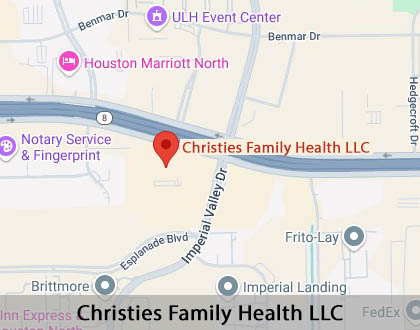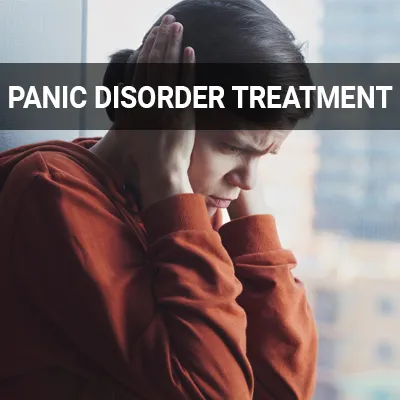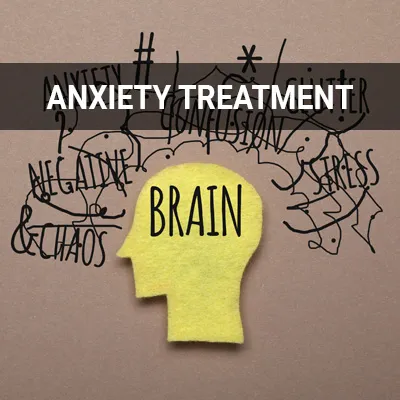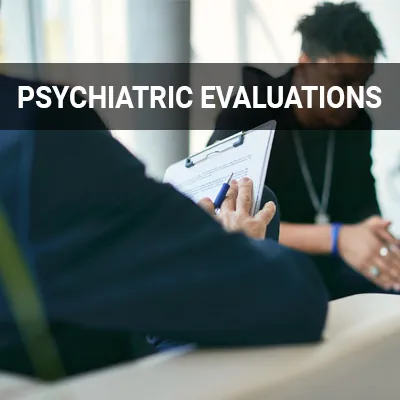ADHD Treatment Houston, TX
Adults and children with Attention Deficit Hyperactivity Disorder (ADHD) struggle with attention, impulsivity, and distractibility. However, with treatment, ADHD does not have to cause problems in a person’s school, professional career, or personal life. With the right combination of medication and therapy, those with ADHD can thrive.
If you suspect that you or a loved one is struggling with symptoms of ADHD, help is available. We offer ADHD treatment in Houston and the surrounding area. Call (832) 915-1818 for more information or to schedule an appointment.
ADHD Explained
ADHD is a neurodevelopmental disorder most commonly diagnosed in children but found to be present in 4% of adults. People with this disorder have greater than average trouble focusing most of the time, are easily distracted, have trouble sitting still, concentrating, and controlling impulsive behavior. Everyone has attention problems at times, but a person with ADHD has them to the point where it causes trouble in their relationships, work, and ability to manage their lives.
Scientists still have much to learn about the causes and risk factors behind ADHD. Risk factors for this disorder include genetics, environmental factors, problems during pregnancy, and brain injury. The neurotransmitters dopamine and noradrenaline seem to be involved. One theory holds that in the ADHD brain, fewer of these chemicals are present in the part of the brain responsible for impulse control and attention. Other theories hold that ADHD is due to the brain’s inability to make proper use of these chemicals or that structural differences are responsible for the disorder.
“Everyone has attention problems at times, but a person with ADHD has them to the point where it causes trouble in their relationships, work, and ability to manage their lives.”
Symptoms of ADHD
People with ADHD exhibit a persistent pattern of hyperactivity, being driven to distraction, and impulsive behaviors that begin in childhood and may continue into adulthood. For a person to be considered to have ADHD they must display a significant number of the following symptoms for 6 months or more:
- Being easily distracted or overwhelmed
- Difficulty concentrating for significant periods of time
- Frequent mood swings
- Inability to control impulses
- Makes careless mistakes
- Persistent disorganization
- Poor follow through on tasks
- Poor planning and time management
- Restlessness and trouble being still
- Trouble controlling temper or coping with stress
- Trouble prioritizing tasks
Just because a person experiences these symptoms from time to time, does not mean they have ADHD. However, when one experiences a pattern of these symptoms on an ongoing basis in a way that is age-inappropriate or disrupts their daily life, they likely have ADHD.
“People with ADHD exhibit a persistent pattern of hyperactivity, being driven to distraction, and impulsive behaviors that begin in childhood and may continue into adulthood.”
Benefits of Treatment
The good news is, people diagnosed with ADHD can live not only manageable but also fulfilling lives with the right forms of treatment. In children, treatment can lower childhood behavior problems and help children excel in school. In adults, treatment can improve job stability, work performance, and relationships with colleagues and loved ones.
In addition, proper diagnosis and treatment can raise a person’s self-esteem and prevent other problems those with ADHD are at higher risk for, including anxiety, depression, and addiction. Studies show treatment can even help those with ADHD live longer. A psychiatrist can help make a proper diagnosis and create a treatment plan tailored to the patient’s needs as well as their lifestyle, habits, work, relationships and other factors.
“In adults, treatment can improve job stability, work performance, and relationships with colleagues and loved ones.”
Check out what others are saying about our mental wellness services on Yelp: ADHD Treatment in Houston, TX
ADHD Medication and Therapy
ADHD is a complicated disorder and calls for a treatment approach that combines medication with other therapies. Each case is different, and what works for one person may not work for another. There are also different approaches to treatment for adults and children.
Medication is typically part of any ADHD treatment plan for an adult or a child. There are currently stimulant and non-stimulant medications available to help treat the disorder. These are also available in a short or long-acting form. A psychiatrist works with the patient after diagnosis to determine the most effective and safest medication considering the patient’s unique circumstances.
Few treatment programs can be effective with medication alone. Helping a person with ADHD overcome barriers and realize their full potential requires assistance in changing the maladaptive behaviors and thinking habits caused by the disorder. Therefore, we also work with each patient to identify their unhelpful thoughts and behaviors and work together to help them develop healthier thought and behavior patterns.
“Helping a person with ADHD overcome barriers and realize their full potential requires assistance in changing the maladaptive behaviors and thinking habits caused by the disorder.”
Questions Answered on This Page
Q. What are the symptoms of ADHD?
Q. How can someone benefit from ADHD Treatment?
Q. Will someone with ADHD always need treatment?
People Also Ask
Continued Care
Continued monitoring and therapy are crucial to managing the disorder. ADHD often continues into adulthood. Medication and therapies will likely need to be adjusted as the individual’s needs and responsibilities change. Also, discoveries are constantly being made in the treatment of this disorder. Therefore, we use new proven information to improve upon existing ADHD treatment.
The long-term care plan is different for children and adults. For children, additional training is recommended for parents to help them cope with their child’s ADHD. If the child is under the age of six, parents are advised to start their child on behavior therapy before turning to medication. Those diagnosed as adults will likely need additional help breaking well-established unhelpful habits and ways of thinking. Some find it helpful to continue medication into adulthood, while others eventually manage their condition without medication. We work with each patient to monitor the effectiveness of their care plan and make adjustments when necessary.
“Medication and therapies will likely need to be adjusted as the individual’s needs and responsibilities change.”
Frequently Asked Questions
Q. Are ADHD medications safe?
A. ADHD drugs are safe for the most part, and the benefits far outweigh the potential risks for those who take them. We will thoroughly explain the risks and benefits of medication with you and rule out any conditions that would increase the risk of negative side effects. In addition to carefully screening patients before putting them on medication, we monitor patients closely to make the medication is working as it should.
Q. Do ADHD medications lead to addiction?
A. Some are concerned about the addictive nature inherent in stimulant medications for ADHD. We want to reassure you that when taken as prescribed, the risk of addiction is extremely low. In many cases, because they help a patient control impulsivity, they reduce the patient’s risk of developing a substance abuse disorder. However, we take the risk of addition very seriously and tend not to prescribe these medications to those at high risk of abusing them.
Q. How common is ADHD?
A. According to the American Psychiatric Association, ADHD is the most common mental disorder affecting children. However, according to the Cleveland Clinic medical center, an estimated 4% of adults have the disorder as well. Also, it appears to be more common in boys than girls.
Q. How is ADHD diagnosed?
A. ADHD is typically diagnosed after a complex evaluation. There is no single test that can determine if a person has ADHD. Typically, the practitioner interviews the patient in detail about current symptoms in addition to getting a thorough understanding of the patient’s past and current circumstances. It is also necessary to identify co-existing conditions and rule out illnesses and conditions that present symptoms similar to ADHD.
Q. What factors make a person more likely to develop ADHD?
A. There is much research that needs to be done in this area. However, ADHD does seem to have a strong genetic link. Three to six-year-olds are the most common age group diagnosed, and exposure to toxins, premature birth, and maternal substance abuse are suspected to be factors. More boys are diagnosed with this disorder than girls. However, the jury is still out as to why. Some argue that the disorder is equally common in boys and girls. The reason more boys end up being diagnosed is that boys with the disorder tend to be more disruptive.
Start Feeling Better – Visit Us Today
By visiting us as soon as possible, our team can help get you the professional treatment you need. Instead of waiting around and allowing the symptoms to get worse, we can provide you with treatment options.
Definitions
Call Us Today
If you or your child is struggling with the symptoms of ADHD, help is available. Our team can perform an evaluation and match you with a treatment plan that is right for you. Call us now at 832-915-1818 to learn more and schedule an appointment.
Helpful Related Links
- American Psychiatric Association (APA). American Psychiatric Association (APA). 2024
About our business and website security
- Christies Family Health LLC was established in 2021.
- We accept the following payment methods: American Express, Check, Discover, MasterCard, and Visa
- We serve patients from the following counties: Harris County
- We serve patients from the following cities: Houston, Aldine, Jersey Village, Humble, and East Aldine
- Norton Safe Web. View Details
- Trend Micro Site Safety Center. View Details
Back to top of ADHD Treatment

















